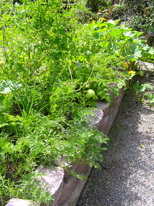 Jake with diesel electric engine at M'TK train yard.
Jake with diesel electric engine at M'TK train yard. The comments of the Seahawks quarterback Russell Wilson about teamwork being important in winning a game resonated with me. I remember my own football coach yelling, “Pass the ball. The whole team plays.” Game after game he yelled at us, and we learned to play for the whole team. This is why I think my team won our national tournament.
I remember the day I got the concept of how to play football. I’d learned the game from my cousins who were older than me. They coached me and helped me look good on our makeshift field. I must have been twelve, maybe thirteen, when my school coach yelled at us to “Pass the ball.” The thought struck home. “I need to play like my cousins taught me and make the weaker players look good. The team is like a family.” I understood the meaning of family and helping the whole family to prosper
Now, in my country families do not live all over the country as they do in some more modern countries. Most of us live with our grandparents, aunts and uncles and cousins in one large compound. Both of my grandparents had been killed in purges, so my parents chose to make their own family, however, I did live at The Cove, mama’s ancestral home for a number of years and for many years helped my family sell their fish and shellfish in the city where we lived. We saw members of the family every week.
I look at cultures where many generations do not live together and I think, “How lonely.” I think much of my loneliness has come from being separated from my cousins.
Celia tells me a different story about families living together. Certainly, she could not have lived long with her parents or her younger brother. They seemed to delight in hurting this brilliant creative woman. Why? My answer is that they were not team players. They never learned the art of making someone look good. Despite being family they puffed themselves up by putting a member of the family down. I would not believe this had I not witnessed this myself. I cannot understand what they are thinking.
I have heard stories since I was a small boy of large families where the older aunties are cruel to the younger wives and attempt to rule over the younger families. I heard those stories among the workers who had fled their family homes to escape the cruelty of harsh uncles or parents. In this case, the refusal of the older generation to work together as a team, building each other up has caused the family to fly into separate pieces. They chose pride and power over stability, wealth and happiness.
In order for families, communities and institutions to prosper they must learn to work together building each other up as a winning team. Teasing, name calling and attempting to control other members of the family will tear the family apart. Parents who allow such behavior will find themselves when they are old wondering why their children never visit. How much better it is to have your grandchildren and cousins about you, than to sit alone by the silent phone.


 RSS Feed
RSS Feed